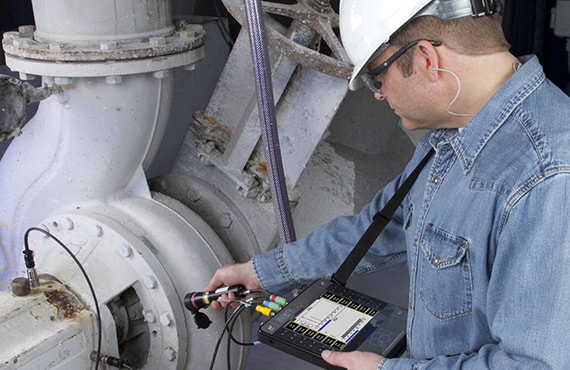ISO 22810 – Water Resistance Test for Watches
The ISO 22810 standard specifies methods for determining the water resistance of watches. This test is crucial in ensuring that timepieces can withstand exposure to varying degrees of water pressure, which is essential for their longevity and reliability in various environments.
Water resistance testing is a critical aspect of watchmaking, especially for those destined for use in aquatic or humid conditions. The standard is widely recognized and used by manufacturers, regulatory bodies, and consumers alike. Compliance with ISO 22810 ensures that watches meet the necessary performance criteria, enhancing consumer trust and satisfaction.
The test involves subjecting the watch to specific water pressures for a defined period, typically under controlled conditions in a laboratory setting. This process helps identify any potential weaknesses or design flaws that could compromise the watch's integrity over time.
Understanding the parameters involved is essential for accurate testing and reporting. The standard outlines various levels of water resistance, ranging from simple splash resistance to full immersion in deep water environments. Each level requires specific conditions and durations to ensure accuracy:
- Splash Resistance: Exposure to light splashes without any significant ingress.
- Waterproof Up to 30 meters: Suitable for everyday use, including washing hands or showering.
- Waterproof Up to 100 meters: Ideal for swimming and snorkeling at the surface.
- Waterproof Up to 200 meters: Designed for deep-sea diving activities, including scuba diving.
The testing process itself is meticulous. Watches are placed in a water-filled chamber where the pressure increases gradually until it reaches the specified level. The watch remains submerged for a predetermined time, after which any leakage or damage is assessed visually and with specialized equipment.
Proper specimen preparation is key to achieving reliable test results. Watches must be cleaned thoroughly before testing to remove any dust or debris that could interfere with the integrity of the seal. Additionally, the seals and gaskets should be checked for freshness and condition to ensure they are not degraded by age or previous use.
The instrumentation used in ISO 22810 tests is sophisticated and designed to provide precise measurements. High-pressure water chambers, pressure gauges, and visual inspection tools are commonly employed. These instruments allow technicians to monitor the watch's performance under varying pressures accurately.
Reporting of test results is critical for both manufacturers and consumers. The report typically includes details such as the maximum depth tested, any observed leaks or damages, and a pass/fail determination based on the standard criteria. This information helps ensure that watches are appropriately marketed and sold to meet consumer expectations.
The importance of ISO 22810 in quality assurance cannot be overstated. By adhering to these standards, manufacturers can demonstrate their commitment to producing reliable products that meet international benchmarks. This not only enhances brand reputation but also fosters customer confidence and loyalty.
Eurolab Advantages
At Eurolab, we pride ourselves on offering comprehensive services tailored to the unique needs of our clients in the oil & gas sector. Our expertise in condition monitoring and integrity testing is complemented by a deep understanding of ISO 22810 standards.
We employ state-of-the-art facilities equipped with cutting-edge technology, ensuring that we can provide accurate and reliable water resistance tests for watches. Our team comprises highly skilled professionals who are well-versed in the latest testing methodologies and best practices.
Our commitment to excellence is further underscored by our adherence to international standards such as ISO 22810. By doing so, we ensure that every watch subjected to our tests meets the highest quality and reliability benchmarks. This not only enhances the reputation of manufacturers but also provides peace of mind for consumers.
We offer flexible testing options to accommodate various client requirements. Whether you need a single watch tested or an entire batch, we have the capacity and expertise to handle your needs efficiently. Our goal is to provide swift turnaround times without compromising on accuracy or quality.
Eurolab's reputation for excellence in oil & gas testing extends beyond our core services. We are dedicated to fostering long-term partnerships with our clients by offering ongoing support, regular updates on industry trends, and proactive advice on best practices. This ensures that you always have the latest insights and recommendations at your disposal.
Quality and Reliability Assurance
- Consistent Performance: Our rigorous testing protocols ensure consistent results across all watches tested.
- Expertise in Standards: We stay current with the latest ISO standards, ensuring our tests are always up-to-date.
- Precision Instrumentation: Utilizing high-precision equipment guarantees accurate measurements and reliable data.
- Comprehensive Reporting: Detailed reports provide a clear overview of each watch's performance under various water pressures.
Environmental and Sustainability Contributions
In our commitment to sustainability, Eurolab prioritizes the efficient use of resources and minimization of waste. Our testing processes are designed to be environmentally friendly, with a focus on reducing energy consumption and minimizing chemical usage.
We also encourage our clients to adopt sustainable practices in their operations, offering guidance and support where possible. By working together, we can contribute positively to the environment while maintaining high standards of quality and reliability.





